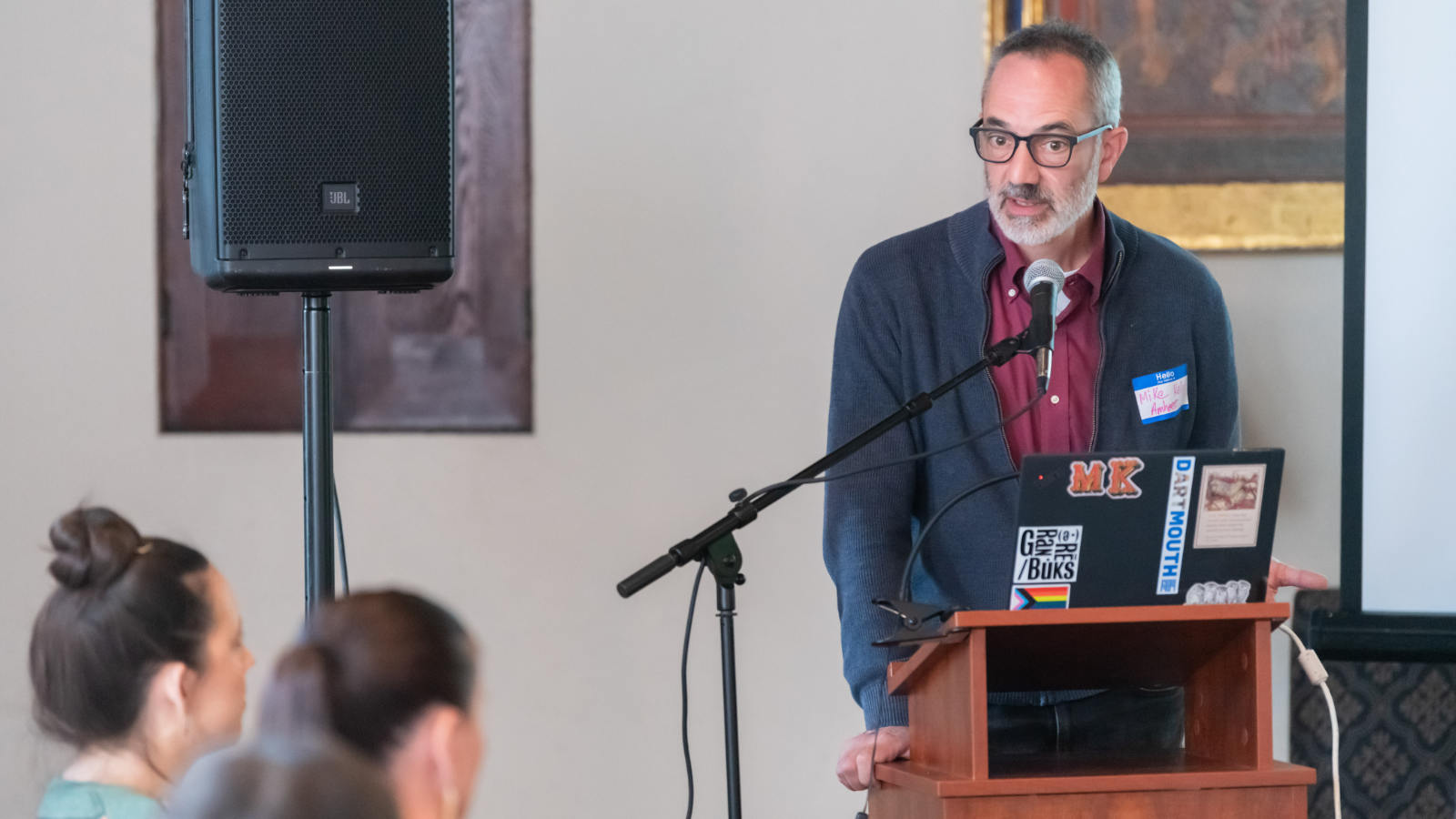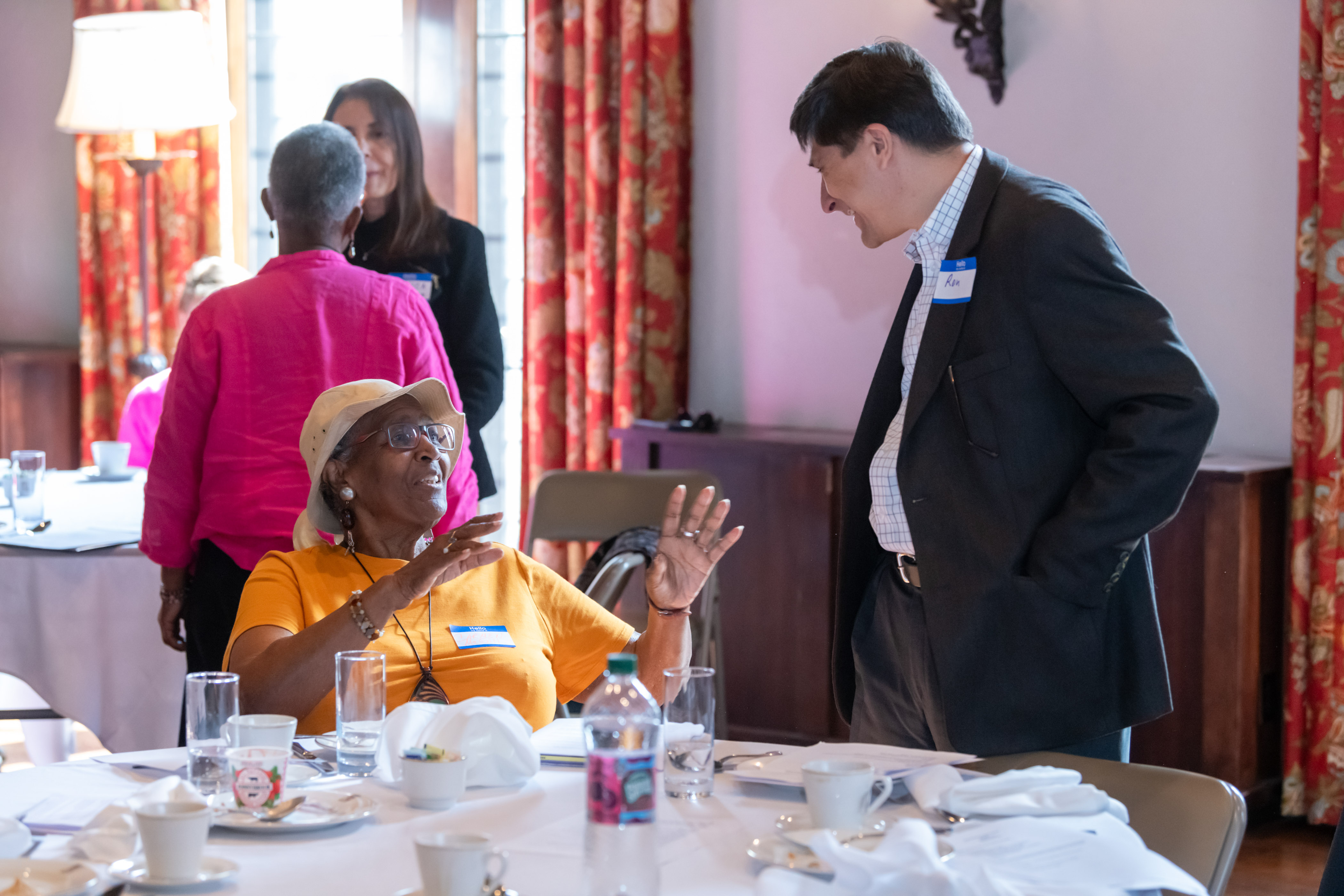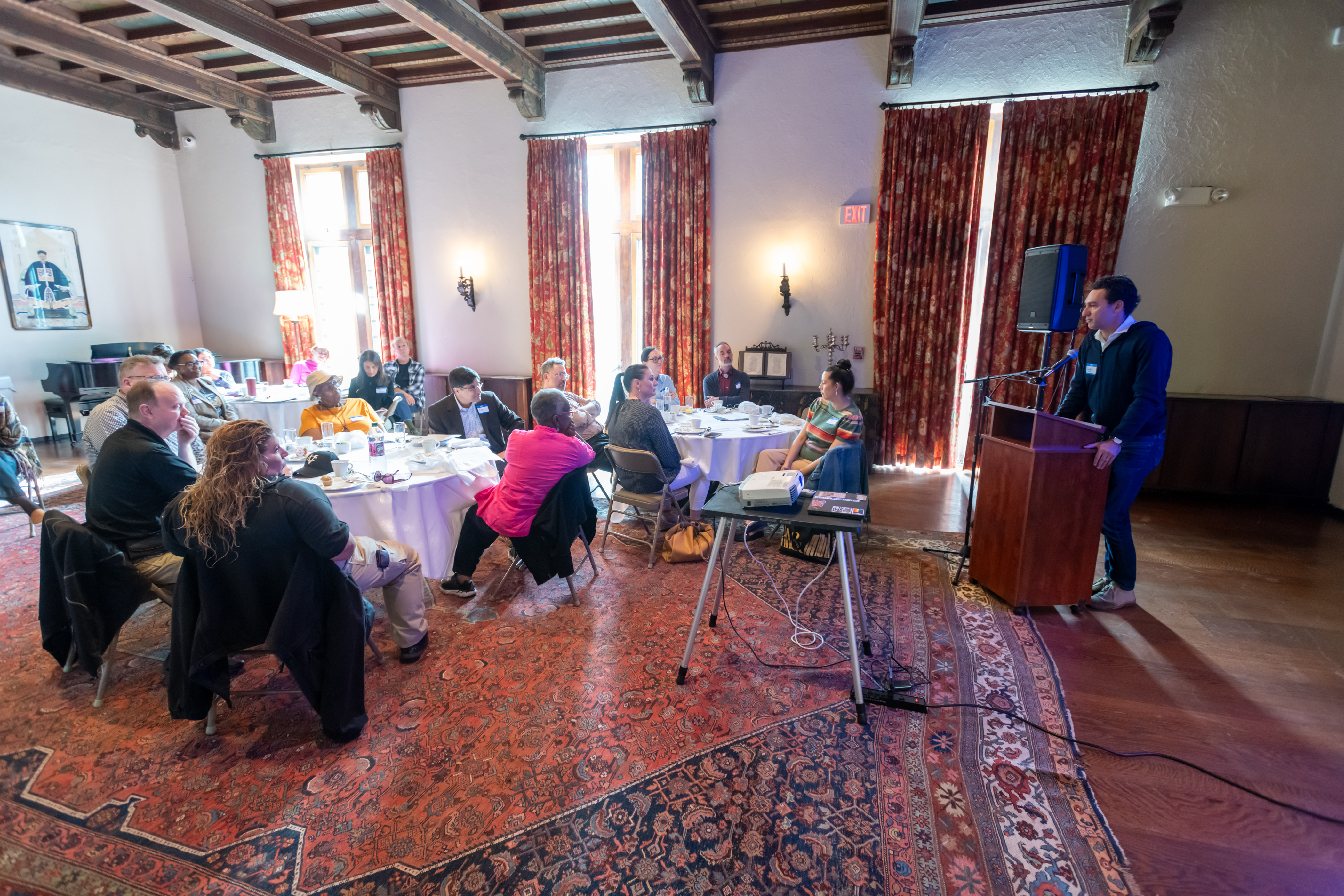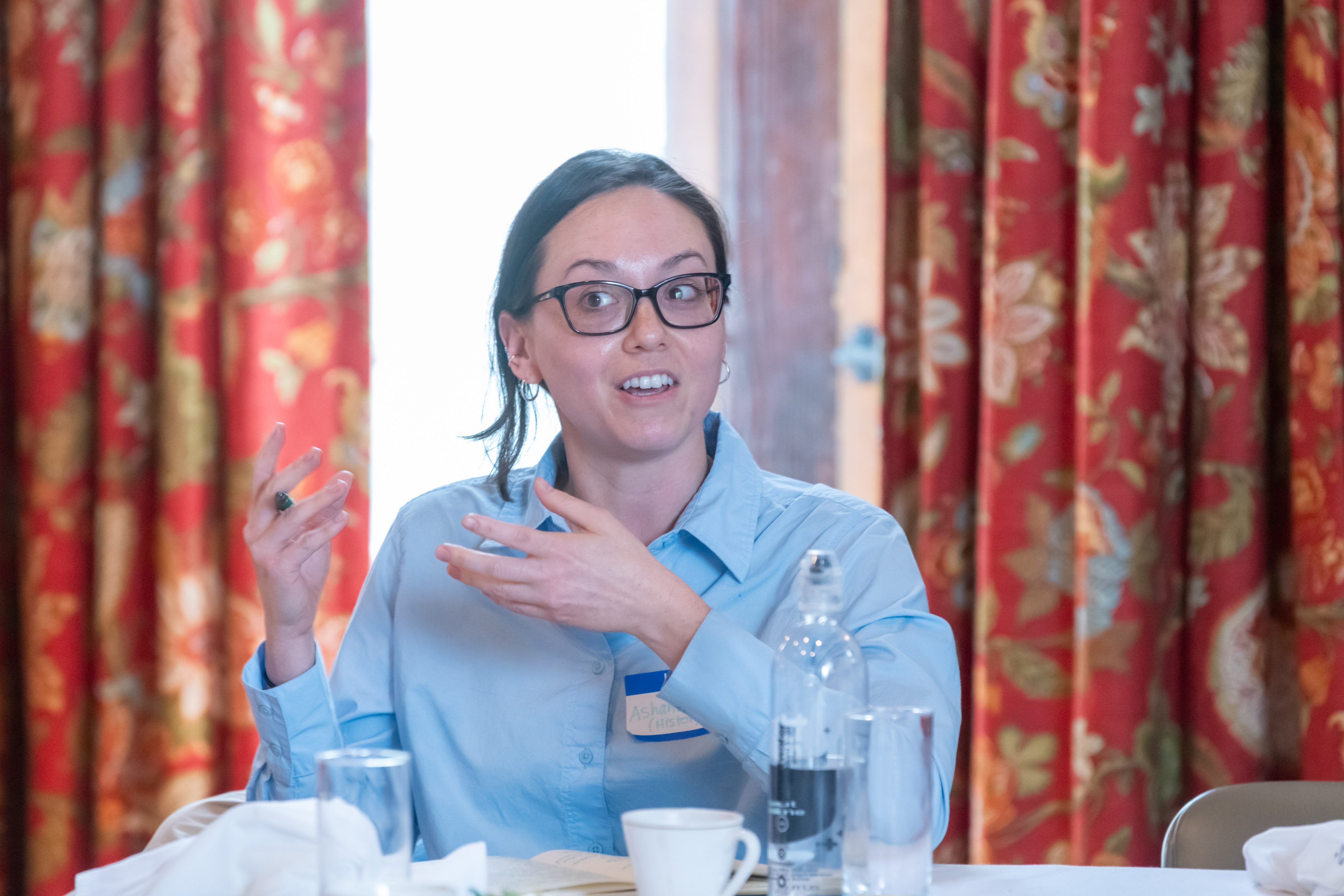Inclusive History Initiative Gathers Steam with Expert Input, Student Research
When President Elizabeth H. Bradley launched the Vassar Inclusive History initiative, she cited its goals as “engaging our community broadly to research, document, and make publicly accessible the history of Vassar with respect to diversity, equity, and inclusion.”
The initiative took another step forward this fall at a day-long retreat at Alumnae House attended by members of the Vassar community and others engaged in attaining those goals. “We are off to a good start—there is momentum,” said Professor of Religion and Engaged Pluralism Director Jonathon Kahn, a member of the initiative’s steering team.

The keynote speaker at the retreat was Michael Kelly, Head of Archives and Special Collections at Amherst College and co-chair of Amherst’s Committee on Racial History. Kelly told those assembled at the retreat how his college was undertaking the task of re-telling Amherst’s history with respect to issues of equity and inclusion. He emphasized that the effort required a comprehensive approach that included participation by the full college community but also extended beyond the campus to the surrounding community and others with expertise in the field.
Vassar is adopting that model. The initiative is led by a six-person Steering Commission and is rounded out by a broader 20-member commission representing the Vassar community—including students, alums, administrators, staff, faculty, as well as members of the Poughkeepsie community. The College has also appointed an august group of external advisors: Amherst’s Kelly; Henry Louis Gates Jr., Alphonse Fletcher University Professor and Director of the Hutchins Center for African and African American Research at Harvard University; Sarah Barringer Gordon ’82, Arlin M. Adams Professor of Constitutional Law and Professor of History Emerita at the University of Pennsylvania; and Bill Jeffway, Executive Director of the Dutchess County Historical Society.

Ronald Patkus, Vassar College Historian and Associate Director of the Libraries for Special Collections, said the Inclusive History Project had grown out of a nationwide initiative among many colleges and universities that are taking a second look at their histories, particularly as they relate to slavery and racial oppression. “Vassar is taking part in that larger effort, and it’s important that we do so,” Patkus said. “It will help us see our history through a wider lens.”
Kahn said those attending the retreat were committed to convening monthly meetings throughout the balance of the 2023–24 academic year to develop programs and projects to advance the group’s work. One goal is to post articles reflecting on difficult aspects of Vassar’s past written by faculty, students, and administrators.

“The issues surrounding higher education and its role in society is on peoples’ minds these days,” Kahn said. “These institutions are flawed; they are not always pillars of righteousness, and I think students are interested in exploring these questions.”
Several students have already agreed to conduct research and write articles for the initiative’s website which will be launched in the spring. Croix Horsley ’26, a religion and education double major from Cinnaminson, NJ, is preparing to create a video essay on the Rev. Howard Thurman, a Black pastor and nationally recognized human rights advocate who gave sermons at Vassar from 1928 to 1957. “I’m looking at the relationship between Vassar and Thurman during a time of prominent racial strife and asking the questions, ‘Why did Vassar, an institution defined by its exclusivity, actively seek out the presence of Thurman,’ and ‘What common ground could possibly exist between an all-White institution and a Black preacher of Thurman’s prominence?’” Horsley said.

Sophia Greene ’26, an English and psychological science double major from Miami Beach, Florida, discussed the focus of her research on Vassar’s early environment. “I’m delving into whether, even long after [Matthew Vassar’s] death, this environment might have played a role in early 20th-century blackface performances during Founder’s Day celebrations,” Greene said. “The Inclusive History Initiative is important to me because recognizing and understanding the racial injustice at Vassar in the past is essential for fostering empathy and fueling collective efforts toward a fairer Vassar today.”